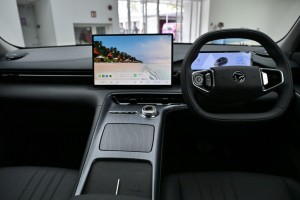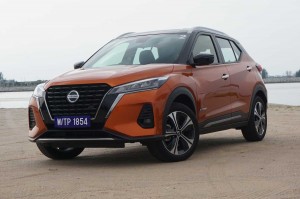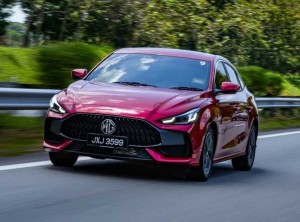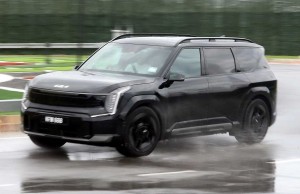KUALA LUMPUR: The discontinuation of the vehicle sales tax exemption beyond this month may create a brief spike in demand for cars for the rest of June and result in a potential sales glut for the remainder of 2022.
An analyst said there could be an “order avalanche in the next 10 days” as potential car buyers will want to take advantage of the limited time left before the tax holiday ends.
“Key implications include a likely surge in orders for the rest of June, bringing forward some sales from the second half of 2022.
“Customers are unlikely to cancel orders post-June 2022, as they may still receive the vehicles before March next year,” he said.
An industry observer cautioned that the discontinuation of the sales tax exemption, which has been in place for two years, could have the same implications as the tax holiday that was implemented in 2018.
“When the government zero-rated the goods and services tax or GST for three months in 2018, it resulted in a spike in demand for vehicles. After the tax holiday ended, car sales were affected for quite some time.”
In a statement yesterday, Finance Minister Tengku Datuk Seri Zafrul Aziz said the vehicle sales tax exemption will end on June 30 as planned.
In his statement, Tengku Zafrul said the extension of time until March next year (to register vehicles booked during the sales tax holiday) was a “midpoint solution” to balance the interests of consumers and the national tax revenue. A total of 868,422 vehicles have been sold and citizens have benefited from a sales tax exemption amounting to RM4.7bil, he noted.
“With the reopening of the economy, operations within the local automotive sector have returned to normal.”
He added that buyers who had booked their vehicles during the tax holiday period have until March 31, 2023 to register their vehicles with the Road Transport Department.
Malaysian Automotive Association (MAA) president Datuk Aishah Ahmad said the time extension will let car companies clear the backlog of orders received from customers.
“Hopefully, the shortage of chips and components would be resolved by then.
“The MAA would like to thank the Finance Ministry (MoF) for this extension to assist in clearing the backlog of order banks,” she told StarBiz.

Aishah.
In his statement, Tengku Zafrul said the extension of time until March next year (to register vehicles booked during the sales tax holiday) was a “midpoint solution” to balance the interests of consumers and the national tax revenue.
A total of 868,422 vehicles have been sold and citizens have benefited from a sales tax exemption amounting to RM4.7bil, he noted.
“With the reopening of the economy, operations within the local automotive sector have returned to normal.”
Tengku Zafrul acknowledged that there had been a large number of vehicle orders that still could not be met in the wake of disruptions to the global supply chain.
“The whole world is facing a shortage of semiconductor microchips, which is widely used across several industries, including the automotive sector.”
The minister said a total of 264,000 vehicles were booked during the sales tax exemption period, but had yet to be delivered to the respective buyers.
“The extension of this vehicle registration period is a mid-point solution to balance the interests of consumers and the national tax revenue, which needs to be lifted again post-pandemic to ensure the welfare of the people and the economic well-being of the country continues to be preserved,” said Tengku Zafrul.
An analyst from a local bank-backed brokerage said the extended waiting period for new cars due to supply chain imbalances had resulted in many car buyers being unable to benefit from the sales tax exemption, should it have ended on June 30.
“Together with the populist aspects, an extension was somewhat expected. Generally positive for the auto sector and helps to avoid some compression of margins, as some distributors were prepared to absorb the sales tax for orders placed before the expiry of the current exemption,” he said.
The vehicle sales tax exemption was announced in June 2020, under the short-term economic recovery plan or Penjana.
Under the exemption, locally-assembled cars are fully exempted from the sales tax while for imported cars, the sales tax was reduced from 10% to 5%.
The tax holiday was supposed to end in Dec 2020 but was however extended to June 30, 2021, and then again until the end of that year.
During the tabling of Budget 2022 in October last year, the government announced that the sales tax exemption would be extended one more time until June 30, 2022.
The multiple extensions were mainly due to the repeated lockdowns over the past two years, which disrupted business operations and prevented car buyers from being able to fully enjoy the benefits of the tax holiday.
Separately, the MAA said in a statement yesterday that total vehicle sales in May rose to 49,603 units from 47,207 units a year earlier.
MAA expects sales in June are expected to be better than the month of May.

It said the aggressive sales push by car companies and the sales tax exemption, which ends this month, will incentivise customers to buy passenger vehicles.
The association added the shortage of chips and components as well as supply chain disruptions will continue to affect some makes.
Year-to-date May 2022, vehicle sales rose to 265,656 units from 247,250 units a year earlier.
The MAA is projecting vehicle sales in 2022 to grow 18% year-on-year to 600,000 units, underpinned by the post-pandemic global economic rebound as well as better business operating conditions.












